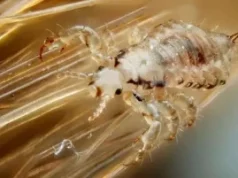Stretchy hair refers to hair strands that have increased elasticity and can be stretched without breaking easily. The science behind stretchy hair lies in its protein structure. Hair is primarily composed of a protein called keratin, which contains amino acids and forms a helical structure. These helices are cross-linked by disulfide bonds, which provide strength and stability to the hair.
Understanding the Elasticity of Hair
Hair elasticity is the ability of the hair strands to stretch and return to their original shape without breaking. It is determined by the structural integrity of the hair shaft and the moisture content within the hair. Healthy hair typically has good elasticity, while damaged or over-processed hair tends to have reduced elasticity.
Also read: Should I Condition My Hair Every Day
Factors Influencing Hair Stretchiness
Several factors can influence the stretchiness of hair. These include:
- Hair porosity: The ability of hair to absorb and retain moisture affects its elasticity. Low porosity hair may have reduced elasticity, while high porosity hair may be excessively stretchy.
- Hair texture: Different hair types, such as straight, wavy, curly, or kinky, have varying levels of elasticity.
- Hair care practices: The use of harsh chemicals, heat styling tools, or improper handling can damage the hair and reduce its elasticity.
- Environmental factors: Exposure to sun, wind, humidity, and extreme temperatures can affect the moisture balance in the hair, impacting its elasticity.
- Nutritional deficiencies: A lack of essential nutrients, such as protein, vitamins, and minerals, can lead to weak and stretchy hair.
Also Read: why my Human Hair wig is Dry and Frizzy- How to Revive it
Why is my hair stretchy? Common Causes of Stretchy Hair
If you’re experiencing stretchy hair, it is likely due to a combination of factors that have affected the structural integrity of your hair strands. Here are some possible explanations:
- Damage from Chemical Treatments: Overprocessing your hair with chemical treatments like hair dye, bleach, relaxers, or perms can weaken the protein structure of your hair. These treatments break down the disulfide bonds in the hair, which can lead to reduced elasticity and stretchiness.
- Heat Styling and Excessive Heat Exposure: Regularly using hot styling tools such as flat irons, curling irons, or blow dryers at high temperatures can deplete the moisture content in your hair. Excessive heat exposure can damage the protein structure, making the hair more prone to stretching and losing its natural elasticity.
- Improper Hair Care Practices: Rough handling, aggressive brushing, or using harsh hair products can damage the hair cuticle, which is the protective outer layer of the hair. When the cuticle is compromised, the hair loses moisture and becomes more susceptible to stretching and breakage.
- Environmental Factors: Environmental stressors like exposure to UV rays from the sun, pollution, dry air, or extreme weather conditions can strip the hair of its natural oils and moisture. When the hair is lacking moisture, it can become brittle, weak, and stretchy.
- Nutritional Deficiencies: A lack of essential nutrients can affect the overall health and strength of your hair. Protein, vitamins (especially biotin and vitamins A and C), and minerals (such as iron and zinc) are important for maintaining healthy hair elasticity. Inadequate intake of these nutrients can result in weak and stretchy hair.
- Overexposure to Chlorine or Saltwater: Frequent swimming in chlorinated or saltwater pools without proper hair protection or care can cause the hair to absorb chemicals or salt, leading to dryness, damage, and decreased elasticity.
- Underlying Health Conditions: Certain health conditions, such as thyroid disorders, hormonal imbalances, or nutritional deficiencies, can impact the health and quality of your hair. These conditions can affect the production of essential proteins and hormones necessary for maintaining hair elasticity.
It’s important to evaluate your hair care routine, lifestyle habits, and overall health to identify the specific factors contributing to your stretchy hair. Adjusting your hair care practices, incorporating a balanced diet, and addressing any underlying health concerns can help restore healthy hair elasticity. If the issue persists, consulting a professional hairstylist or a trichologist can provide personalized advice and guidance for your specific situation.
Also Read: How To prepare Onion Juice For hair growth
Hair Care Practices and Elasticity
Proper hair care practices can help maintain or improve hair elasticity. Here are some tips:
- Avoid excessive heat styling: Limit the use of heat styling tools and use heat protectant products when necessary.
- Gentle handling: Be gentle when brushing or detangling the hair, and avoid pulling or tugging harshly.
- Moisturize regularly: Use moisturizing shampoos, conditioners, and leave-in treatments to keep the hair hydrated.
- Deep conditioning: Incorporate regular deep conditioning treatments to replenish moisture and improve elasticity.
- Protect from environmental stressors: Cover the hair or use protective products when exposed to sun, wind, or extreme temperatures.
- Avoid harsh chemicals: Minimize the use of chemical treatments, or choose gentler alternatives if necessary.
Environmental and Lifestyle Factors Affecting Hair Stretchiness
Certain environmental and lifestyle factors can impact hair stretchiness. These include:
- Sun exposure: Prolonged exposure to the sun’s UV rays can damage the hair cuticle, leading to reduced elasticity.
- Humidity: High humidity can cause the hair to absorb excess moisture, resulting in a loss of elasticity.
- Swimming in chlorinated or saltwater: Chlorine and salt can strip the hair of moisture, making it more prone to stretchiness.
- Smoking: Smoking and exposure to secondhand smoke can weaken the hair and affect its elasticity.
- Stress: Chronic stress can disrupt the hair growth cycle
Nutritional Factors and Hair Elasticity
Proper nutrition plays a vital role in maintaining healthy hair elasticity. Here are some key nutrients that contribute to hair health and elasticity:
- Protein: Hair is primarily made up of protein, so consuming an adequate amount is essential. Include sources of lean protein in your diet, such as chicken, fish, beans, and tofu.
- Omega-3 fatty acids: Found in fatty fish, flaxseeds, chia seeds, and walnuts, omega-3 fatty acids promote scalp health and improve hair elasticity.
- Biotin: This B-vitamin is known for its role in hair health. Include biotin-rich foods like eggs, nuts, seeds, and sweet potatoes in your diet.
- Vitamins A and C: These vitamins help in the production of sebum, the natural oil that moisturizes the scalp and hair. Incorporate foods like carrots, spinach, citrus fruits, and bell peppers.
- Iron: Iron deficiency can lead to hair loss and reduced elasticity. Consume iron-rich foods like lean meats, spinach, lentils, and fortified cereals.
- Zinc: Zinc is involved in hair tissue growth and repair. Include zinc sources such as oysters, lean meats, whole grains, and legumes.
Also Read: side effects of Using Clove Water For hair Growth
Chemical Treatments and Stretchy Hair
Chemical treatments, when not performed or maintained properly, can contribute to stretchy hair. Here are some examples:
- Overprocessing: Excessive use of hair dye, bleach, perms, relaxers, or other chemical treatments can weaken the hair structure, causing it to become stretchy.
- Incorrect application: Applying chemical treatments for longer than recommended or overlapping previously treated hair can lead to overprocessing and damage.
- Incompatible products: Mixing incompatible hair products or using them in combination with chemical treatments can cause adverse reactions and compromise hair elasticity.
It’s important to follow the instructions provided with chemical treatments, conduct patch tests, and seek professional advice when needed to minimize the risk of stretchy hair.
Tips for Restoring Healthy Hair Elasticity
If you’re experiencing stretchy hair, here are some tips to help restore its healthy elasticity:
- Trim damaged ends: Regular trims remove split ends and prevent further damage from traveling up the hair shaft.
- Deep conditioning treatments: Use deep conditioning masks or treatments enriched with moisturizing ingredients like shea butter, argan oil, or coconut oil to restore moisture and improve elasticity.
- Protein treatments: Consider using protein treatments or masks to strengthen the hair strands. However, be cautious not to overuse protein treatments, as excessive protein can make the hair brittle.
- Gentle styling techniques: Minimize the use of heat styling tools and opt for heat-free styling methods like air-drying, braiding, or using rollers. Avoid tight hairstyles that can cause tension and breakage.
- Protective styling: Wear protective hairstyles that keep the ends of your hair tucked away, reducing exposure to environmental stressors and friction.
- Balanced diet: Ensure your diet includes a variety of nutrient-rich foods to support overall hair health and elasticity.
- Hydration: Stay hydrated by drinking enough water, as dehydration can affect hair moisture levels.
- Avoid harsh chemicals: Minimize the use of harsh hair products that contain sulfates, alcohol, or other drying ingredients.
Seeking Professional Help for Stretchy Hair Issues
If you’re struggling with persistent stretchy hair issues, it may be beneficial to consult a professional hairstylist or a trichologist, a hair and scalp specialist. They can assess your hair’s condition, provide personalized advice, and recommend specific treatments or products to restore healthy elasticity. They may also identify any underlying causes or conditions that could be contributing to the issue, such as scalp disorders or hormonal imbalances. Professional guidance can help you develop a targeted
Also read: Top 15 Best Mousse For 4C hair type
FAQs:
Q1: Can stretchy hair be reversed?
A: Yes, in many cases, stretchy hair can be reversed by adopting proper hair care practices, avoiding damaging treatments, and addressing underlying causes such as nutritional deficiencies or health conditions. With the right approach, you can restore your hair’s natural elasticity and strength.
Q2: How long does it take for hair elasticity to improve?
A: The time it takes to improve hair elasticity can vary depending on the severity of the damage and how well you follow a healthy hair care routine. It may take several weeks or months of consistent care and maintenance to see noticeable improvements in hair elasticity.
Q3: Can using hair masks help improve hair elasticity?
A: Yes, using hair masks, particularly those containing moisturizing and protein-rich ingredients, can help improve hair elasticity. Regular application of deep conditioning masks can provide the necessary hydration and nutrients to nourish the hair and enhance its elasticity.
Q4: Is it necessary to seek professional help for stretchy hair issues?
A: While many cases of stretchy hair can be resolved with proper care and adjustments to your hair care routine, seeking professional help can be beneficial, especially if the problem persists or is accompanied by other concerning symptoms. A professional hairstylist or trichologist can provide expert advice, diagnose any underlying issues, and recommend targeted treatments for your specific needs.
Conclusion
Stretchy hair can be a frustrating condition, but understanding the causes and implementing appropriate measures can help restore healthy hair elasticity. By adopting a gentle hair care routine, avoiding damaging treatments, addressing nutritional deficiencies, and seeking professional help if necessary, you can promote the recovery of your hair’s natural strength and elasticity. Remember to be patient and consistent in your efforts to achieve optimal results.






